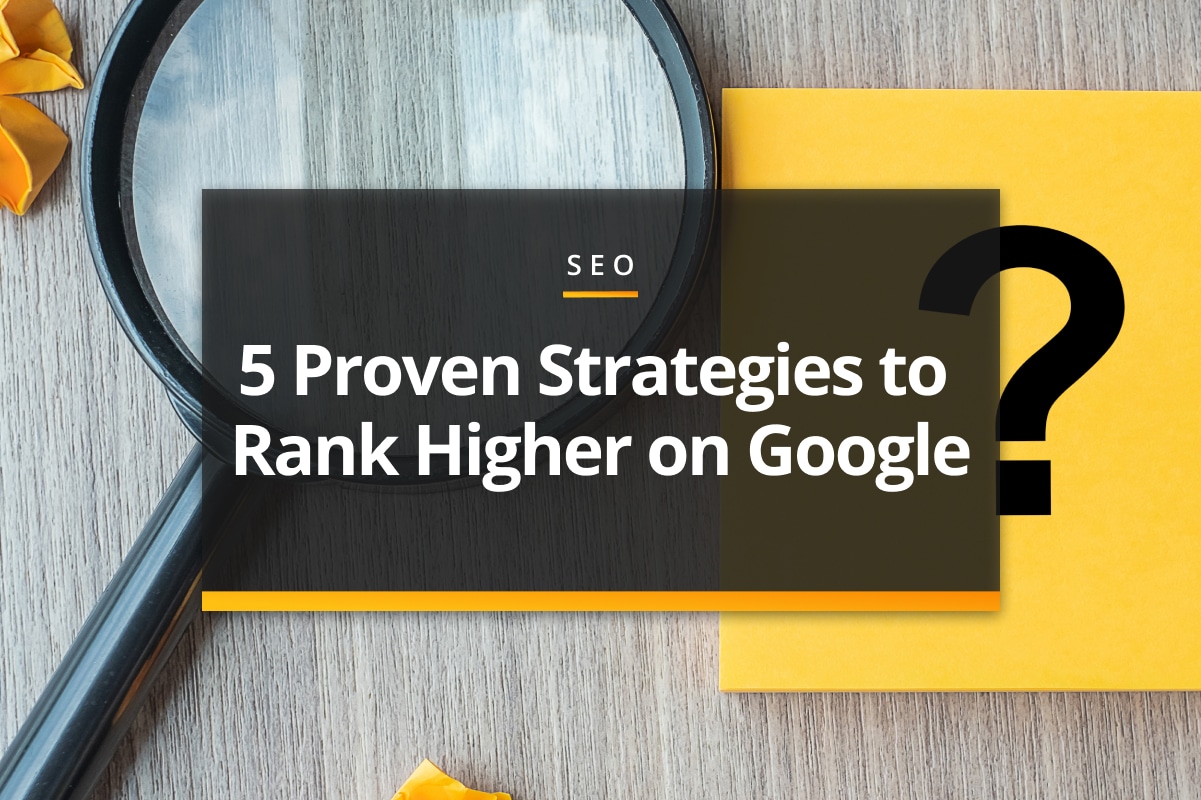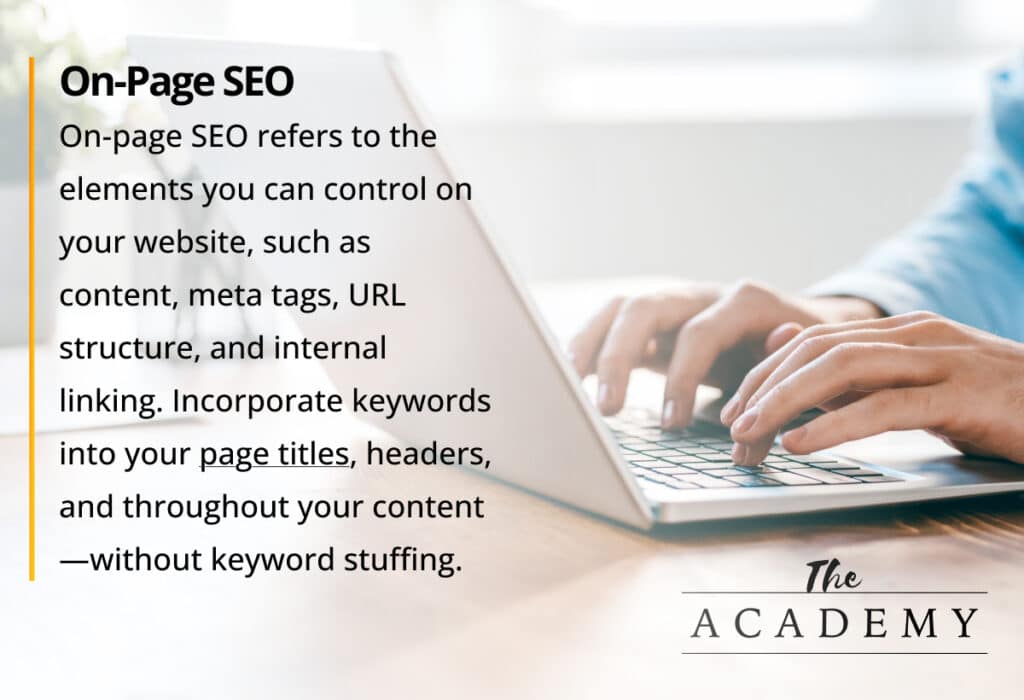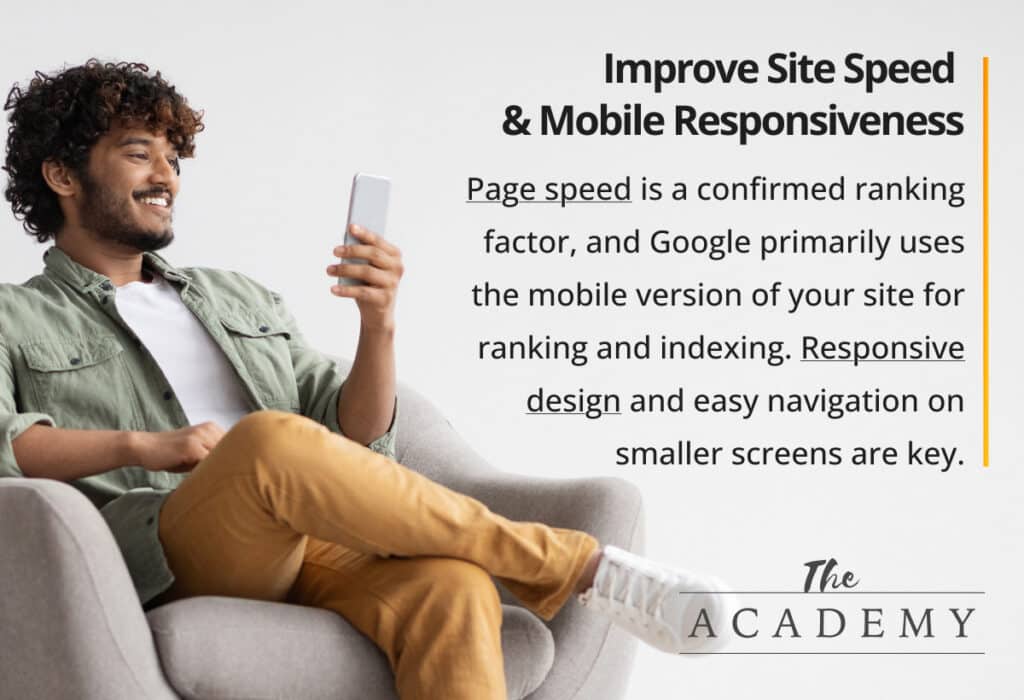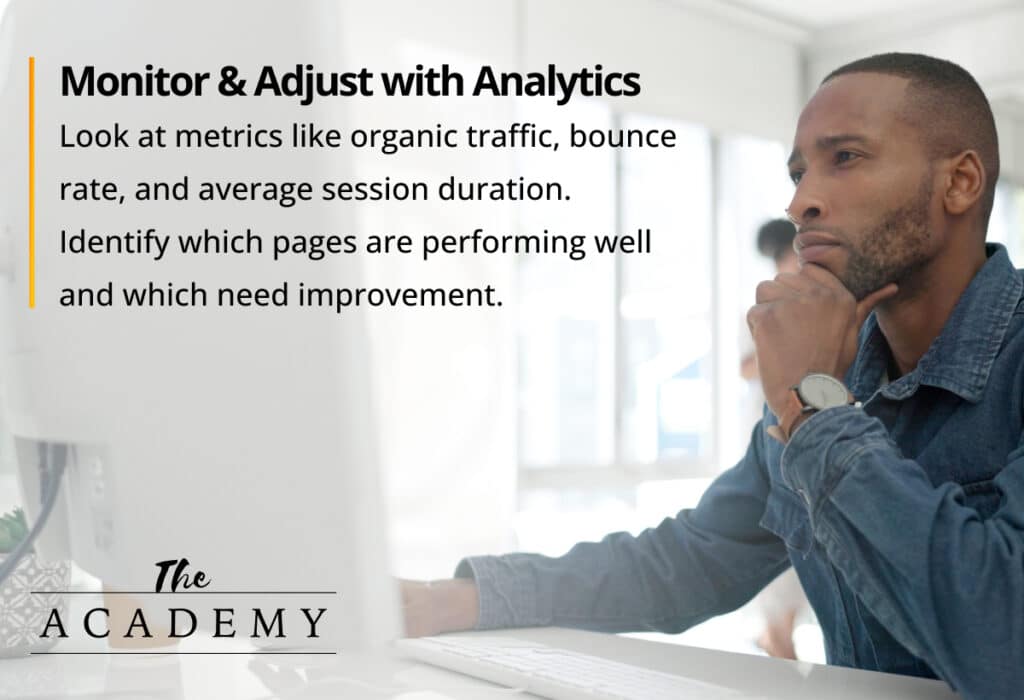
Whether you’re running a business, a blog, or an eCommerce site, showing up on the first page of Google isn’t just a goal—it’s a necessity. Higher rankings mean more visibility, more traffic, and ultimately, more conversions. But how do you climb the ranks in Google’s ever-evolving search algorithm? Keep reading for five proven strategies to help your website rank higher on Google.
1. Optimize for On-Page SEO

On-page SEO refers to the elements you can control on your website, such as content, meta tags, URL structure, and internal linking. Start by identifying relevant keywords your target audience is searching for using tools like Google Keyword Planner or SEMRush. Then, naturally incorporate these keywords into your page titles, headers, and throughout your content—without keyword stuffing (the practice of filling a web page with keywords or numbers in an attempt to manipulate rankings in Google Search results).
Also, ensure your meta descriptions are compelling and include your target keyword. While meta descriptions don’t directly impact rankings, they influence click-through rates, which can improve your site’s performance.
- Write compelling headings and meta titles with keywords
- Make sure descriptions are the optimal length
- Link content to pass link authority among your pages, and help search engines crawl your site
2. Create High-Quality, Valuable Content
Google rewards websites that provide valuable, original, and informative content. Instead of writing content just for search engines, write for your audience. What questions are they asking? What problems do they need to solve? Address these through blog posts, guides, videos, and FAQs.
Content that is engaging and answers user intent is more likely to keep visitors on your site longer, reducing bounce rates and signaling to Google that your site is valuable.
- Keyword targeting—without stuffing
- Answer the questions your visitors are asking or problems they need to solve
3. Improve Site Speed and Mobile Responsiveness

Page speed is a confirmed ranking factor. If your site takes too long to load, visitors will bounce, and Google will take notice. Use tools like Google PageSpeed Insights to identify areas for improvement, such as image optimization, minimizing CSS/JavaScript, and leveraging browser caching.
Also, ensure your website is mobile-friendly. With mobile-first indexing, Google primarily uses the mobile version of your site for ranking and indexing. Responsive design and easy navigation on smaller screens are key.
- A seamless experience across all screen sizes
- Increased engagement and conversions
4. Build High-Quality Backlinks
Backlinks—links from other reputable websites to yours—are one of the most powerful ranking factors. Focus on building quality over quantity. Reach out to industry websites, write guest posts, get listed in online directories, and create share-worthy content that naturally earns links.
Google views backlinks as endorsements of your content’s authority and relevance. The more high-authority sites linking to yours, the better your chances of ranking higher.
- Check backlink quality and quantity
- Strategically gain new backlinks
- Remove bad/spammy backlinks
5. Monitor and Adjust with Analytics

You can’t improve what you don’t measure. Use Google Analytics and Google Search Console to track your site’s performance. Look at metrics like organic traffic, bounce rate, and average session duration. Identify which pages are performing well and which need improvement.
Regularly update your content, test new keywords, and adapt your strategy based on data. SEO isn’t a one-time effort—it’s an ongoing process.
- Measure organic traffic
- Monitor keyword rankings
- Review user engagement metrics
- Optimize conversion rates
Focus on SEO Strategies
Ranking higher on Google takes time, consistency, and a solid strategy. By focusing on technical SEO, valuable content, user experience, and quality backlinks, you can steadily improve your rankings and grow your online presence. Stay updated on Google’s algorithm changes and be patient—the results are worth it.
Most Popular Articles

Seeing Favicons in Your Google Search Results? Here’s Why…
Have you noticed anything different in your Google Search results lately? Google added tiny favicon icons to its organic search results in January. It was…

Business Growth and Digital Marketing News & Tips 11-17-24
Are you encouraging and rewarding innovation? Lee Cockerell is the former Executive Vice President of Operations at Walt Disney World. A lover of traditional red…

Business Growth and Digital Marketing News & Tips 11-27-24
A culture of gratitude "Feeling gratitude and not expressing it is like wrapping a present and not giving it." – William Arthur Ward Beyond being…








